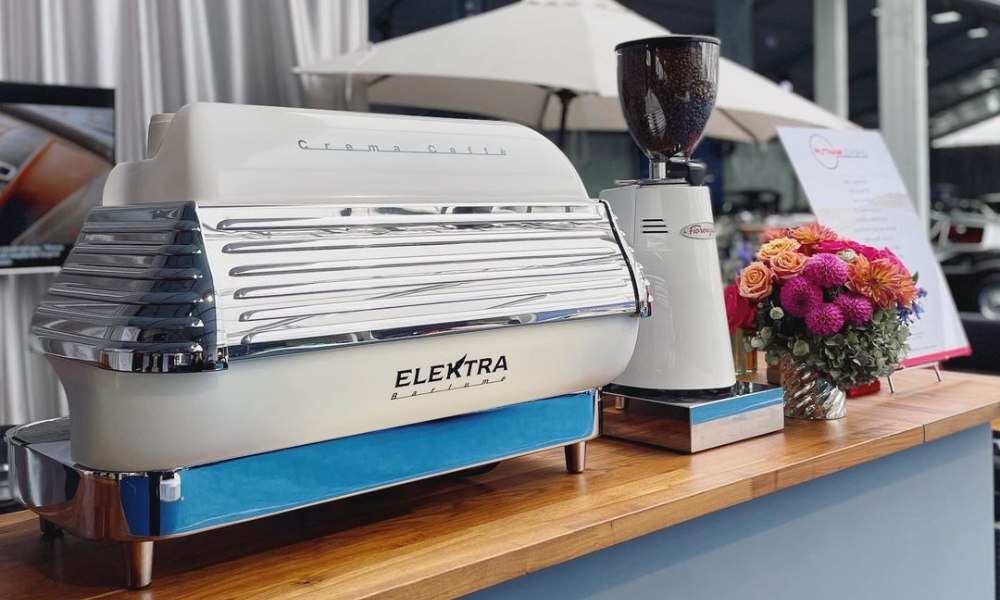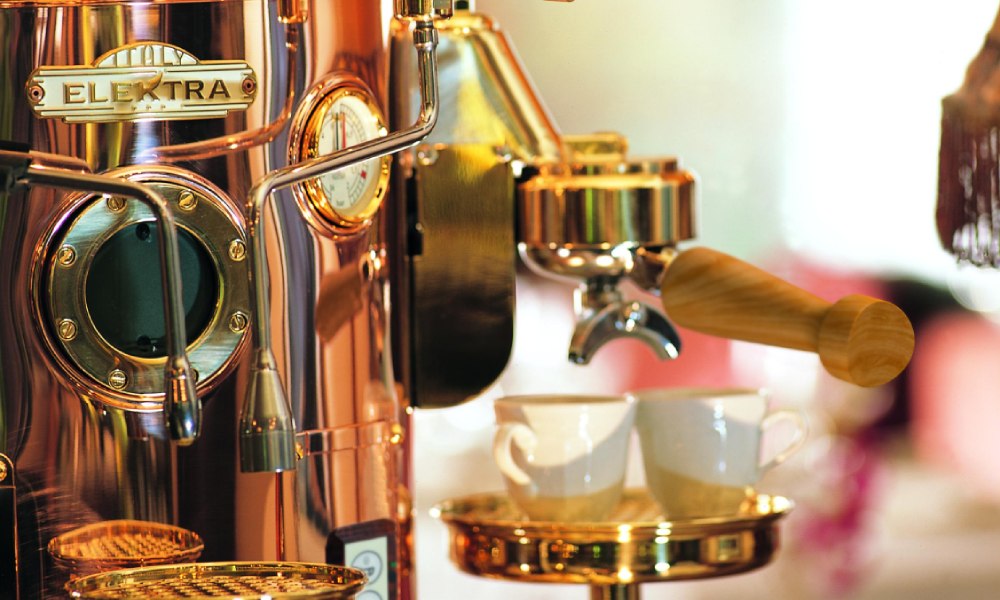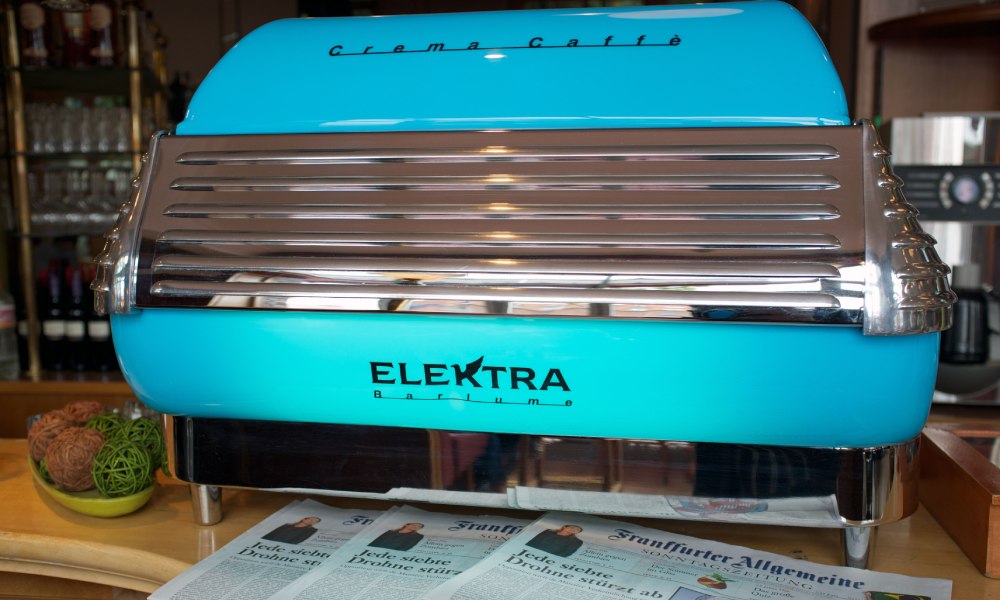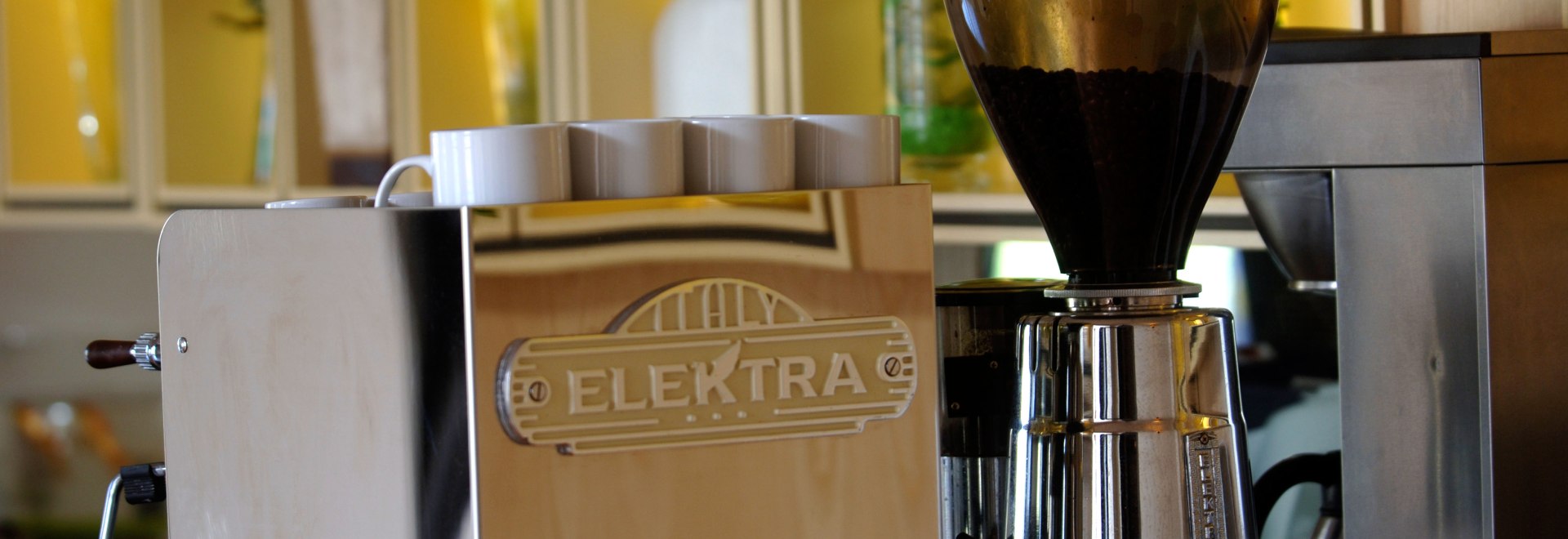How a custom espresso machine can improve brand identity
Customisation has long been a part of espresso machine manufacturing. David Phillips explores how the practice has changed over the years – and how it will continue to change into the future.
Since the first recognised patent in 1884, espresso machine design has come a long way.
In the early 20th century, innovations from Bezzero and Pavoni enabled espresso machines to scale commercially. Following that, Ernesto Illy introduced the steam wand in the 1930s – creating the blueprint for what is now recognised as the modern espresso machine.
It could be argued that subsequent improvements have been modifications to an already functional product. However, the role of the espresso machine has changed drastically in that time. Changes in design and performance have been pivotal in elevating its cultural status within the coffee industry and as a wider symbol of conversation and community.
The espresso machine is widely considered the centrepiece of a coffee shop. Often the first thing a customer notices, it has the power to create a lasting impression. Moreover, espresso machine design and ergonomics are crucial in shaping the interaction between baristas and customers.
Now that a small number of espresso machine manufacturers supply a vast amount of coffee shops, it is common to encounter the same models. Therefore, many businesses are opting for a custom espresso machine as a way to differentiate.

A cohesive experience
Customisation provides coffee shops with an opportunity to align the design of their espresso machine with the overall branding of their space. Furthermore, it can represent an overall commitment to quality and craftsmanship – details that are often paramount for specialty coffee businesses.
“I’ve seen a lot more investment in creating a better experience for customers,” explains an anonymous espresso machine expert. “In general, getting something that suits your brand and identity in the shop builds a whole experience for a customer.”
This emphasis on customer experience is echoed by a recent study stating that a personalised approach to brand marketing can affect consumer purchasing decisions by up to 80%.
“I once worked for a café with a stark blue machine in the middle,” the expert says. “While that was interesting to people and it drew them to the machine, it didn’t fit the whole atmosphere. I think it almost made you disassociate the machine from the brand.”
Customers increasingly want an experience from their “third space”, and the espresso machine is part of that. If it’s disconnected from its surroundings, it can be jarring. By incorporating colours, logos, and other visual elements into a custom espresso machine, coffee shops can create a cohesive experience that elevates a customer’s sensory journey and aligns with their brand.
“If you create something that sits on the counter and very effectively catches people’s attention, but also aligns with the brand that you’ve got, it makes it feel much more complete and well-rounded,” he adds.

Customising for improved espresso quality
Customisation has also come to include various modifications that can enhance espresso quality and improve workflow.
A custom espresso machine can be tailored to meet the functional needs of baristas. Features can include programmable buttons, adjustable cup heights, more intuitive controls, and other enhancements that streamline the process and enhance the barista’s performance.
Additional modifications can also be implemented to enhance older machines. For example, PID controllers and group head thermofilters can be added for greater control over temperature.
Plus, adjustable overpressure valves (OPVs) and pressure gauges allow the pump pressure to be changed, while controllable valves enable flow rate control, catering to the increasing preference for flow and pressure profiling.
There are also simpler modifications available for those without extensive knowledge of espresso machine mechanics. Steam wand controls and tips can be changed depending on personal preference; shower screens can be updated for more even distribution of water over ground coffee; and replacing spouted portafilters with bottomless portafilters can help to identify extraction issues such as channelling.
However, as new technology continues to automate various aspects of the brewing process, the world of custom espresso machines is expanding.

The future of custom espresso machines
In the coffee industry, the espresso machine has long been considered the beating heart of the coffee shop. Customisations have focused on enhancing this crucial element and optimising workflow based on traditional espresso machines.
However, the role of the machine is changing. Automation means that fewer inputs are required and, increasingly, they function more self-sufficiently. As such, customisations will have to evolve to reflect this.
At the same time, customisations must account for an evolving coffee shop workflow that sees baristas increasingly prioritise customer engagement, rather than solely concentrate on ensuring espresso quality.
Having said this, the espresso machine has carved out a significant and enduring cultural status within the industry. For most, its prominence within the coffee shop is not so easily displaced.
As a result, vintage espresso machines continue to play a special role in the coffee industry. For example, the Elektra Barlume embodies a dedication to the rich heritage of espresso machine manufacturing which sets it apart as the industry changes.
These machines have not only retained their nostalgic appeal, but they have also developed in terms of operability to meet the modern demands of espresso brewing. For example, the Elektra Verve has beautiful, vintage chrome and wood-grain finishings, but it also comes equipped with Wi-Fi, allowing the user to adjust brewing parameters from their phone.
By seamlessly combining tradition with functionality, these machines continue to captivate those hoping to make a statement with their espresso machine. As Mirko Michielon, export manager at Elektra Espresso Coffee Machines told New Ground, “vintage never gets old”.
Ultimately, customising espresso machines has been a longstanding practice, and it always will be. Today, a custom machine can elevate your brand and enhance the coffee shop experience. But vintage machines are popular all the same – and choosing a timeless centrepiece for your shop could set you aside from the competition.







